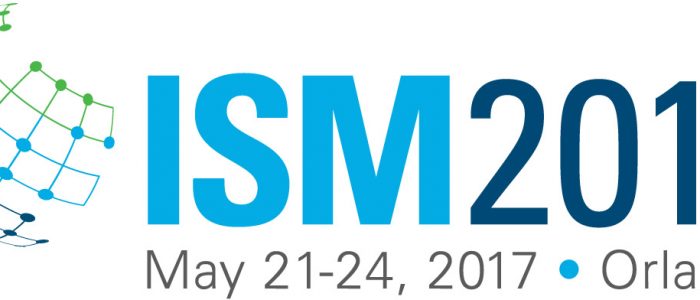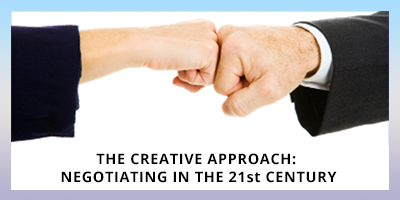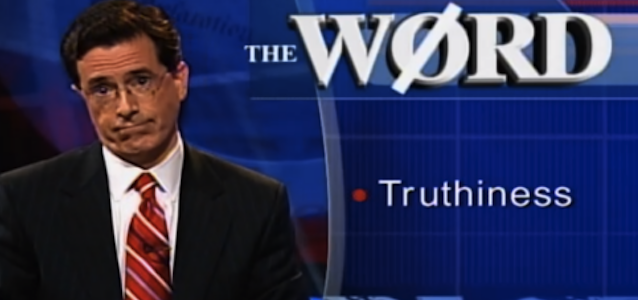Since our middle name is “creative,” we at Mobus Creative Negotiating emphasize creative ways to add value to a deal: to do things neither side was thinking of but which make for a better deal. Many people think creativity is like lightning: it strikes or it doesn’t. Actually, there is much we can do to stimulate us to consider the… read more →
There was a lot of interest in our last newsletter piece, “The 25% Solution.” After reflecting on the comments, I thought it might be worthwhile to discuss. The most common comment or question goes something like this: “I’ve tried this but it just seems to make the other party angry or annoyed. Then they push back, dig in or take… read more →
Every year, sometime in May, the ISM convention is held at rotating sites around the country. This year’s event, held in Orlando, May 21-24, was attended by several thousand procurement and sourcing specialists from leading companies across the U.S. Mobus Creative Negotiating brought a small team to share some of our expertise in negotiation, and to learn from other… read more →
Participant Questions from Webinar, “GETTING CREATIVE: NEGOTIATING IN THE 21st CENTURY” by Dr. Bill Sanders, Business Analyst In last Wednesday’s webinar, Frank and Alexandra looked at the evolving nature of business negotiation. As many business deals, especially for procurement or sales professionals have become more complex, based on repeated transactions and highly-customized solutions, negotiating styles need to change. Old-fashioned power-based… read more →
Using the Truth to Mislead A widely used negotiating tactic, but one which we at Mobus Creative Negotiating do not recommend, is to use the truth to mislead. Philosophers call that “paltering.” A recent Washington Post article by Jena McGregor gives as an example: if the buyer to whom you are selling a used car says, “I presume it runs… read more →
How to Motivate Negotiators The common assumption is what motivates people is money. Makes sense – but what does the evidence show? Behavioral economists have done path-breaking research by questioning these sort of assumptions. We at Mobus Creative Negotiating have drawn much from the work of Dan Ariely. And so we turned eagerly to his new book, Payoff: The Hidden… read more →
Forecasts Show: Every Year is Above Average Many of us have a strong tendency to miss looming problems. We do not like to acknowledge that things may go wrong. This can be a real shortcoming when negotiating an agreement, because we make think that everything is going to work out great without being realistic about problems that may arise. Few… read more →
Prepare for a Negotiation, But Don’t Knock Yourself Out We at Mobus Creative Negotiating stress the importance of being prepared for a negotiation: learning about the other side, thinking about your strategy, and practicing. That is good advice. But as often in life, too much of a good thing can become a bad thing. In particular, do not make overwork… read more →
When Negotiating, Take Advice From the Other Side But Do Not Offer Them Comments When we are negotiating, those who can offer the best evaluation of how we are doing may well be the people on the other side of the table, that is, those with whom we are negotiating. Rarely will they offer us tips on how we could… read more →
When a Deal is Not Possible Mobus Creative Negotiating teaches you how to size up the negotiating situation you are facing, because you should approach haggling with someone you will never see again entirely differently from building a strategic relationship. One of the alternatives you have to consider is that a deal may just not be possible. An unfortunate example… read more →
“When ‘Yes’ Means ‘Not a Chance’” “When ‘Yes’ Means ‘Not a Chance” was the headline on an article by Kara Alaimo in the July 31, 2016 print edition of the New York Times . The article makes a point important for every negotiation: what the other side is saying is not necessarily what they actually mean. A good negotiator is always… read more →
Why Go Out of Your Way to Cooperate with the Other Side In many negotiating situations, it makes sense to ask for a concession from the other side each time you offer to do something for them. Mobus Creative Negotiating teaches how to be creative and insistent in concession-making: how many different things you can ask for and what arguments… read more →
Rationality Does Not Come Naturally In a famous set of 1970s experiments, Daniel Kahneman and Amos Tversky showed that many highly intelligent people are irrational. In one study, they had people read a description of a person and then asked which was more probable: that the person described was a bank teller or that she was a feminist and a… read more →
Why Every Company Should be Afraid, Very Afraid Our title is inspired by a recent New York Times article: $1 Billion for Dollar Shave Club: Why Every Company Should Worry In the modern world, companies disappear in a blink of an eye. “Creative destruction” is the name given to technological change that destroys companies and sometimes entire industries. Think of… read more →
Money May Not Be What Really Matters to the Other Side An important part of being a successful negotiator is figuring out what really matters to the other side – which they may not know. The common error is to assume the other side wants money and money alone, when in fact other things may matter more to them.… read more →
Announcement: New Joint Program, “Negotiating with Competitive Advantages” We are pleased to announce our new partnership with Jaynie L. Smith’s company, Smart Advantage Inc. We’ll be working together to present the new program, Negotiating with Competitive Advantages. In this program, sales and marketing professionals will develop their competitive advantages and practice using them to close more deals, more profitably. … read more →
Beware Experts Who Confuse and Conceal On July 18, the World Bank announced it had appointed as its Chief Economist Paul Romer from New York University’s Stern School of Business. Romer has been involved in a nasty fight with eminent economists for his article attacking “mathiness” in economics – a variant on Stephen Colbert’s “truthiness.” In the pages of… read more →
When Does Cooperation Work? What makes cooperation possible – why don’t people take advantage of the other side at the first chance they get? The answer to that was found by people we usually deride, namely, the traditional economists who study “rational economic man.” Robert Aumann was co-awarded the 2005 Nobel Prize in economics for his work on cooperation. What… read more →


















Recent Comments